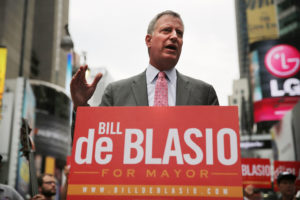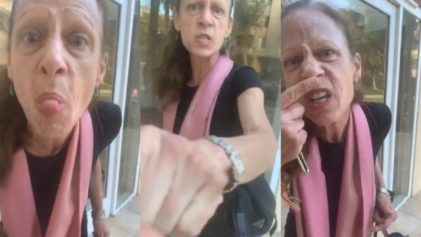
For decades, a loophole in the pot laws in New York has been landing African-American residents in jail at a frightening rate.
While the state technically decriminalized marijuana possession in 1977, a loophole in the law created a separation between “private” possession and “public” possession.
According to the state’s current law, private possession of marijuana is punishable by nothing more than a simple citation and a fee, but public possession of the drug is still considered a criminal misdemeanor.
The loophole also meant that whenever marijuana was taken out of the suspect’s pocket, it was considered in “public” view.
State Sen. Daniel Squadron claimed that he has seen the effects of the racial bias that exists thanks to the pot law loophole.
He said there were only 12 marijuana arrests in his predominantly white neighborhood over three months, while a nearby predominantly Black neighborhood saw more than 430 arrests for marijuana possession during the same timeframe.
“This is a basic issue of fairness – you shouldn’t be able to predict who will be charged with a crime based on race and ethnicity,” Squadron told reporters outside City Hall in Manhattan on Wednesday. “Today, marijuana possession almost never means a criminal record for white New Yorkers, but could easily mean a criminal record for many Black and Latino New Yorkers, who are actually less likely to possess marijuana.”
The new proposed bill, the Fairness and Equity Act, would close the loophole and make public possession only punishable by a noncriminal violation.
“There are still penalties,” said Assemblyman Karim Camara. “We are not legalizing it. We are just saying it should not be a misdemeanor.”
This would be one step closer to solving a long-standing problem in New York.

He said the arrests were taking police focus away from more serious crimes in the area.
At the time, Gabriel Sayegh of the Drug Policy Alliance also acknowledged apparent racial profiling in the arrests.
“We’ve talked to a lot of white marijuana consumers in the city who speak very openly about their marijuana use and that they use it publicly,” he said. “The difference here is that the police are not looking for white marijuana consumers.”
By closing the loophole in the state’s current marijuana laws, however, authorities hope to put an end to the racial profiling.
The bill will also allow some people who have already been arrested for marijuana possession to have their records cleared.
Additionally, the bill would also redefine what is considered to be a “sale” of marijuana.
While the current state laws consider any sharing of marijuana with another person as a sale, the bill would redefine this to only include when the drug is exchanged for money.
Squadron told the Huffington Post that he is hopeful that the state legislators will support the bill.
“When bills like this come to vote, it’s much harder for people to stand against fairness and equity than it is when it gets killed in a back room.”


